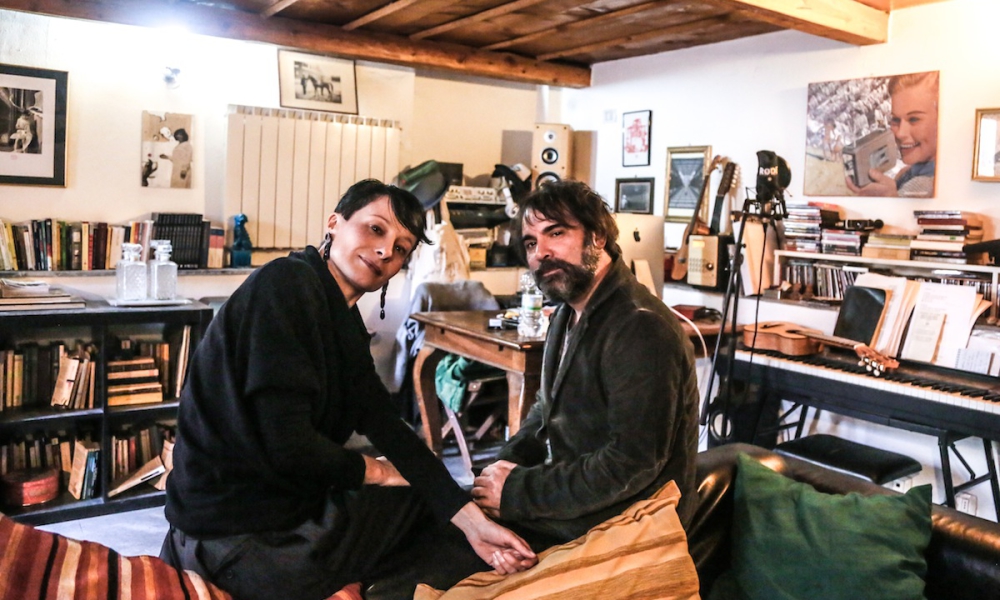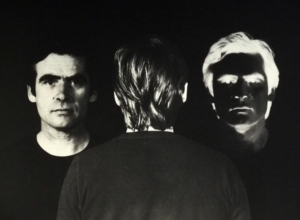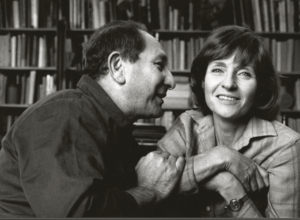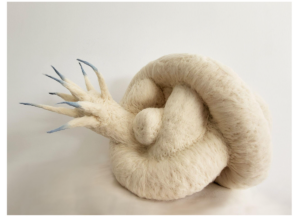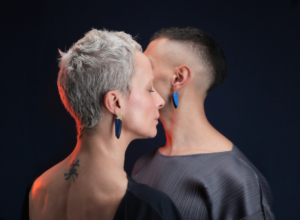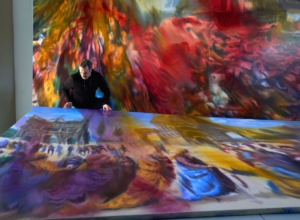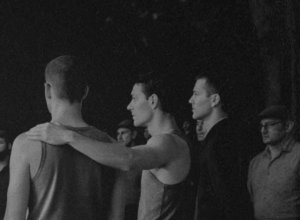#DEFINE MUSIC
Dagli esordi punk al cantautorato italiano, dalla ricerca della contemporaneità insita in certi esperimenti fatti sui suoni e sui testi, come “E’ necessario” (album del 2012), fino al lavoro di autore che lo vede impegnato a scrivere per nomi quali Cristiano De Andrè, Nina Zilli, Francesco Renga, Noemi. E’ un viaggio dentro la parola dalle suggestioni di poesia capace al contempo di farsi musica il lavoro di Diego Mancino. Sensibile quanto raffinato artista.
“La poesia di Rimbaud mi ha fatto scoprire la musica prima della musica. Lui che con la parola, il suono della parola, il ritmo della parola, ha costruito un nuovo modello poetico. La musica è per me l’evoluzione naturale del mio amore eroico per la figura del poeta. Significa cercare parole che oltre a un contenuto abbiano un suono reboante, rotolante perfino, capaci di investirti nell’intimo. Voglio provare a fare del mio tipo di scrittura e del mio modo di lavorare con le canzoni qualcosa di plausibile dal punto di vista poetico.”
Nato in Italia ma cresciuto all’estero tra Francia, Inghilterra, Svizzera e Belgio, Diego ha da sempre la musica italiana nelle orecchie, forte di un padre direttore di un’orchestra da night.
“In casa mia la musica che suonava era quella tradizionale italiana per cui volente o nolente l’ho sempre avuta intorno. Solo che all’inizio mi sono rifiutato di volerla per non essere come i miei genitori. Ed era giusto che fosse così. Il punk è stato il primo fenomeno che mi ha permesso di fare qualcosa che mi rappresentasse.”
Gli anni ‘90 sono caratterizzati da suoni spigolosi e rime come angoli, dalla necessità di vivere il conflitto, manifestarlo e esteriorizzarlo, dal bisogno di rompere con la tradizione della scrittura della musica tradizionale pop italiana. Ramingo in territorio italiano. Con i suoni della Francia e dell’Inghilterra nella mente. La chitarra, il rumore, un gruppo di amici con cui segretamente sognare di diventare qualcuno: i Mary Quant, gli Achtung Banditi, i Solar Flares. La notorietà arriva nel 2005 con “Cose che cambiano tutto” e prosegue con “L’evidenza” album del 2008. Testi suggestivi che approfondiscono e scandagliano stati d’animo. Potere evocativo della parola che rimanda a visioni come finestre aperte su un mondo tutto da scoprire.
”Visionario e simbolista, mi definirei in questo modo. E l’urgenza mia di dire qualcosa nasce da un’ analisi profonda di me stesso e di me nel mondo intorno a me. Ho dovuto avere a che fare col mio io in maniera molto critica e spesso audace e perfino presuntuosa. Ma questo confronto era l’unica strada percorribile. Il risultato? Una scrittura onesta, che credo sia la cosa più importante.”
Nel 2012 esce “E’ necessario”, un lavoro in cui la prosa si fa più rapida, asciutta, più vicina all’hip hop. In cui suonano istanze, brevi e concise, rivolte all’esterno, al mondo dei bisogni: il lavoro, la casa, l’amore.
“Era un tentativo di guardare verso una possibile evoluzione, anche della scrittura stessa, e di muovermi in un perimetro diverso da quello del cantautorato di stampo smaccatamente discorsivo. In fondo è nella ricerca dell’espressione del pop che si formano le idee future.”
Impegnato da qualche anno in una solida opera di scrittura per altri artisti, nella sua veste di autore Diego è stato capace di far arrivare i suoi versi in musica a ridosso di orizzonti inaspettati.
“E’ la poesia che mi ha rapito e metterla nella musica di qualcun altro mi dà l’opportunità di arrivare là dove io non sarei mai stato in grado. Far arrivare dei messaggi, degli stilemi, uno stile che è mio. E’ una piccola pretesa, in un piccolo Paese. Ma una piccola pretesa in un piccolo Paese diventa poi una pretesa quasi importante.”
E’ un pubblico trasversale il suo, costituito di una base solida, maturata nel tempo e con il tempo, che ha apprezzato fin da subito le sue doti di cantautore. E una base liquida si potrebbe dire, in evoluzione e costruzione, che lo ha scoperto in prima istanza come autore e poi è andata a scovare la sua storia.
“Questo mi rende ancora più orgoglioso perché quello è il pubblico al quale mi piace mirare, quello che in realtà non viene spesso investito di certe prerogative musicali, di certa poesia, di certa passione musicale, che è ciò che io rappresento. E ne resta colpito e gioioso. Una piccola battaglia, eppure eroica mi pare. In cui le canzoni diventano una sorta di prima linea, quasi una trincea culturale.”
E’ una Milano segreta e nascosta, che annega nella bellezza a tratti bucolica di una cascina di fine ‘600, il luogo appartato in cui vive Diego mentre gli restituisco questo ritratto in forma di prosa. Una solitudine cercata ora che ha smesso di essere temibile. E un modo discreto di vivere l’arte. Nelle intenzioni lontano da stereotipi e contenitori di massa. Negli intenti vicino ai contenuti, le parole, perché sono loro a restare. E un nuovo lavoro, prodotto da Dario Faini con la Universal Music come partner, pronto a prendere forma. In cui si mescolano la gioia di saper sorprendere e quella di saper far tremare le corde del cuore. Gioie di poeta.
Desidero ringraziare per la cortese intervista Diego Mancino.
Foto e Video di Pasquale Russo
Traduzione di Chris Alborghetti
THE DUMMY MEETS DIEGO MANCINO #DEFINE MUSIC
From the punk debut to be an Italian songwriter, from the pursuit of the contemporary through some experiments done on sounds and lyrics like “È necessario (It’s necessary)” (2012 album), to the job as songwriter. In this respect, he writes for renowned Italian singers such as Cristiano De Andrè, Nina Zilli, Francesco Renga and Noemi. It’s a journey into the word from poetry and its power of suggestion to the lyrics he writes to bring home the bacon. This is Diego Mancino, a sensitive and refined man as well as a polished artist.
“Rimbaud’s poetry made me discover music before music as such did it. In fact, Rimbaud with words, their sounds and rhythms created a new poetic model. To me, music is the natural evolution of the love I feel for the poetic figure. Music means to look for words which have not only significance, but also a “powerful” and distinctive sound which overwhelms you and creeps into you and that deep down generates strong and warm feelings too. I want to make of my way of writing and working with songs something plausible from a poetic perspective.”
Born in Italy but grown up abroad between France, England, Switzerland and Belgium, Diego has had music running through his veins since time immemorial also due to the fact that his father was a night club orchestra conductor.
“At home he played traditional Italian music so, willy-nilly, I was exposed to it. Initially, I refused to listen to it simply because I associated it with my parents and I didn’t want to be like them which was fair enough. Punk music was the first phenomenon which allowed me to do something that really represented me.”
His 90s, are characterised by sharp and piercing sounds, by rough rhymes, by his necessity to experience the conflict and manifest it as much as by the necessity to sever the connection with the writing tradition of traditional Italian pop music. He wanders Italy with French and English sounds on his mind. The guitar, the noise, a circle of friends such as the Mary Quant, the Achtung Banditi, the Solar Flares with whom he secretly dreams of becoming somebody. He finds fame in 2005 with “Cose che cambiano tutto (Things that change everything)” and he grows in popularity in 2008 when he releases the album “L’evidenza (The Evidence)”. Captivating lyrics that look at frames of mind in depth. The evocative power of words which lead to visions like those of open windows which give on a world yet to be discovered.
“Visionary and symbolist, that’s how I’d define myself. The urge to say something stems from a profound self-analysis as a being but also as a being in the world he dwells in. I had to deal with my id very critically, often audaciously or even presumptuously at times. I decided to confront my id, however, was it the only way to get where I wanted to? What about the out come? A writing, I’d say a forthright one, which in my humble opinion is what really counts.”
In 2012, “È necessario (It’s necessary)”, a work where prose becomes more rapid and dry, simple but flowing and rhythmic at the same time and indeed closer to hip-hop comes out. In the album they play brief and concise, requests, addressed to the world of people in need of work, a roof, love or simply in need .
“It was an attempt at evolving, writing-wise and at moving away from the pure discursive songwriting at the same time. After all, it’s in the search for expression of pop music that future ideas take shape.”
Busy for a few years in solid writing for other artists, as a lyricist Diego has been able to make his verses reach the music scene, which was well beyond his own horizons.
“I’ve been carried away by the fervour of poetry and to put these inner and profound thoughts and feeling into somebody else’s music gives me the opportunity to get somewhere where I would have never been able to otherwise. Convey messages and stylistic features is my style. It’s a whim in a little country. However, a whim in a little country like Italy can become something big.”
His audience is diverse, receptive and enthusiastic. It is his base and has matured over time. It is an appreciative audience which since the beginning acknowledged him as a gifted songwriter. His audience is like a liquid base, it is under construction and in progress at the same time if you know what I mean. It discovered him as a songwriter and then it went to search out his history.
“This makes me even more proud since that is the the kind of audience I aspire to. I mean, people who rarely come into contact with such music, poetry and say musical passion too, which is what I totally and utterly represent. This is what strikes the audience which goes mental for me. A small battle, heroic though, I think where songs become a sort of trench and front line, a cultural one.”
It is a secret and secluded part of Milan that drowns in the nearly bucolic beauty of a farmstead from the end of the 1600’ the place where Diego dwells. It is there where I give back to him this portrait in the form of prose. A life of solitude he has longed for and that luckily, is no longer awful, but just a decent way to experience art. His intentions are far from stereotypes and mass containers. His intents are close to the contents, hence to words since words last forever. A new work produced by Dario Faini in partnership with Universal Music is ready to take shape. In this creation the joy of being able to surprise blends with that which makes the strings of the heart vibrate. The poet’s joy.
I would like to offer my special thanks to Diego Mancino, who gave the interview to me.
Photo & Video by Pasquale Russo
Translation by Chris Alborghetti


